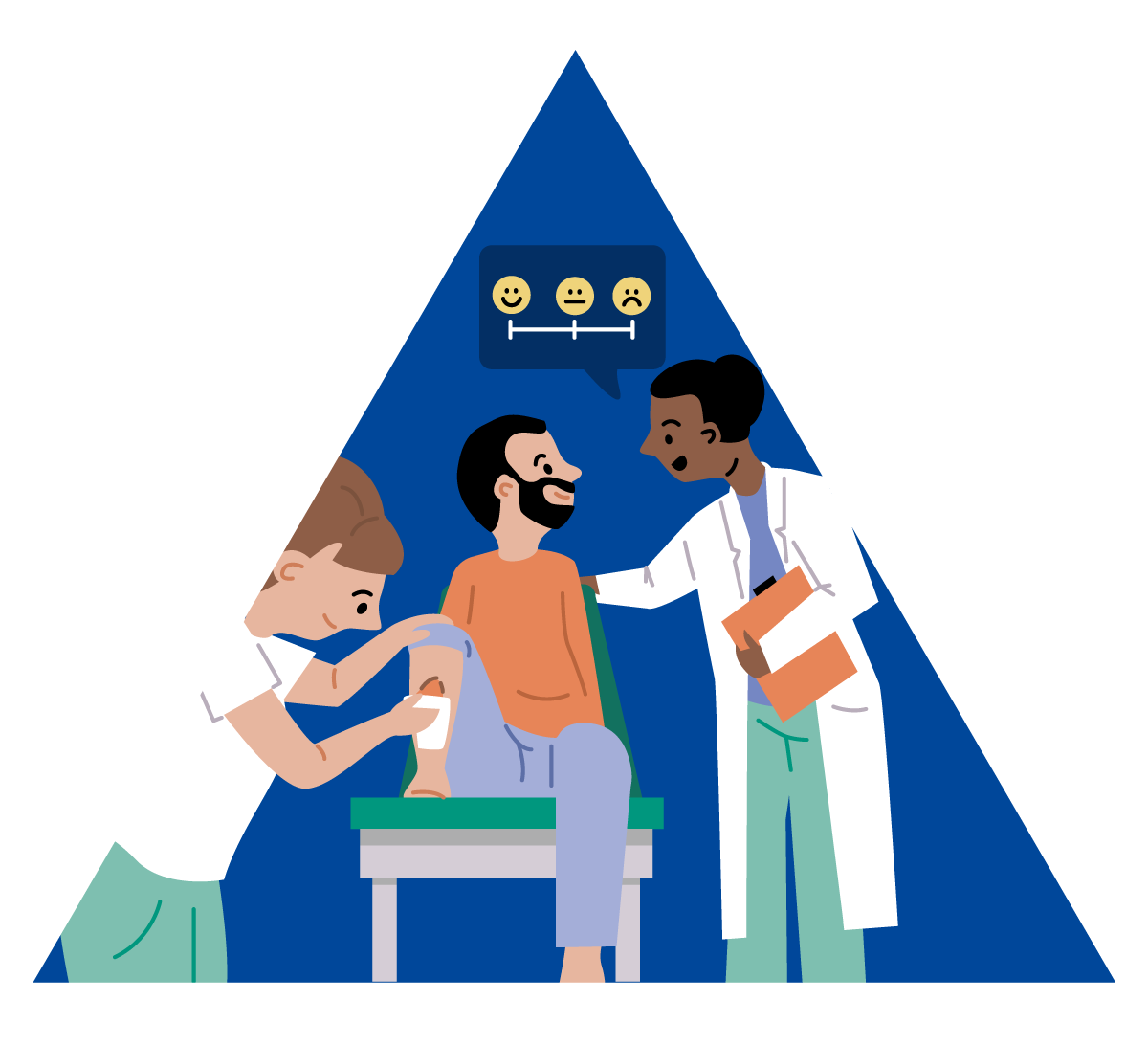Experiential knowledge on chronic wounds: Perspectives from patients, relatives and providers
Chronic wounds are not only a medical issue. They have a profound social component, from the social impact of living with a wound to the complex human interactions involved in its treatment. That is why we dedicate our social science project to the experiential knowledge of patients, relatives and providers. How chronic wounds and their treatment are experienced can give us a lot of information about the challenges patients and practitioners face and what they need from health policy makers.
The project “Experiential Knowledge of Chronic Wounds” is dedicated to an in-depth look at experiencing chronic wounds from a social science perspective. By focusing on the experiences of affected people – patients, relatives and practitioners – we can understand the extent to which healthcare addresses the actual needs and hurdles of daily life in chronic wound care. With these findings we can make a decisive contribution to improving the care structure in Austria. The project is supported and enriched by a close cooperation with the Department of Political Science at the University of Vienna.
We put a focus on recording and analyzing individual experiences made in course of the treatment of chronic wounds in Austria. Through individual and group discussions as well as practical observations, we gain insights into everyday wound care from different perspectives. We pay particular attention to how existing care structures are perceived, which needs remain unmet and which improvements are desirable in the future. Over the course of the numerous conversations, recurring patterns emerged that we were able to identify as core topics in wound care in Austria.
Based on this, we have highlighted in our first publication the negotiation processes and relationship work that are daily practice in the landscape of chronic wound care in Austria.
In a second scientific article we look at the everyday realities of chronic wound patients and their relatives. We show that the compatibility of wound care with other activities of daily life, such as work, child care or similar care work in the family, is a challenge. A lack of flexibility in the treatment setting and long waiting times make it difficult to integrate chronic wound care into everyday life. Instead, daily life obligations must be organized around wound care.
In the future, we aim to incorporate the knowledge we have gathered into the design of future care structures. We not only want to identify problems, but also develop concrete solutions that meet the needs of those affected and will outlast the duration of our project.
